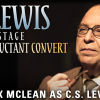I’ve benefited greatly from time management seminars, books, and resources that help me “make the most of 24 hours.” I also use calendars and consult, evaluate, and restructure them constantly. But there’s more to life than just managing minutes and hours, right? Life involves more than just the relentless sequence of days, doesn’t it?
Moses told us to “number our days” but something points beyond them – the goal “that we may gain a heart of wisdom” (Psalm 90:12). His admonition to think soberly about our time-bound, earthly lives relates significantly to our timeless, eternal destinies.
Jesus rebuked a crowd for understanding some things about time (reading signs to know if it’s going to rain, etc.) but being obtuse about “interpreting this present time” (Luke 12:54-56).
His word choice instructs us to value both “time” and “times.” The New Testament uses four different words to express time. aion expresses a long period similar to our English word age. hora refers to an hour or short unit of time. In between aion and hora, we find chronos and kairos, the two terms I focus on in this blog. chronos leans toward measurable units of time while kairos points toward opportunity or moment. chronos is literal. kairos is figurative. Jesus told us to “interpret the present kairos.”
chronos looks at calendars. kairos writes memoirs. chronos asks how long something takes, how to make the most of it, and seeks efficiency. kairos asks what’s happening, how to interpret it, and seeks wisdom.
Commenting on Luke 12:54 – 56, James Edwards writes, “kairos does not refer to time as duration but to time as opportunity, e.g., time to plant, time to harvest, time to celebrate, time to raise or lower the sails. kairos is not about ages but about seasons, and how to recognize them.”
We need to appreciate both kinds of time. I’m not saying chronos is unimportant and kairos is all important. But I do fear our contemporary world overvalues efficiency and busyness, leaving no room for reflection and rest. Jesus’ words to the crowd in Luke 12 could be echoed loudly to our world today.
If I dig deeply into the causes of busyness, I may find a dark nihilism lurking below. Some worldviews despair of any meaning to life. So it’s best to just seek distraction. Recognizing or evaluating kairos could get depressing if “there’s no there there.”
But God has placed eternity in our hearts, which prompts us to ask how each moment links to eternity. The passage of time cries out for meaning and not just for filling.
As Christians, people who have eternal life (note the present tense!), we must “make the best use of kairos” (see Eph. 5:16 and Col. 4:5). We can do so because we live in time but are destined for eternity. And we can point our friends (who might be tired of mere “time management”) toward The Timeless One who entered time. We steward chronos because we celebrate kairos, knowing that each hora will eventually become an eternal aion.



